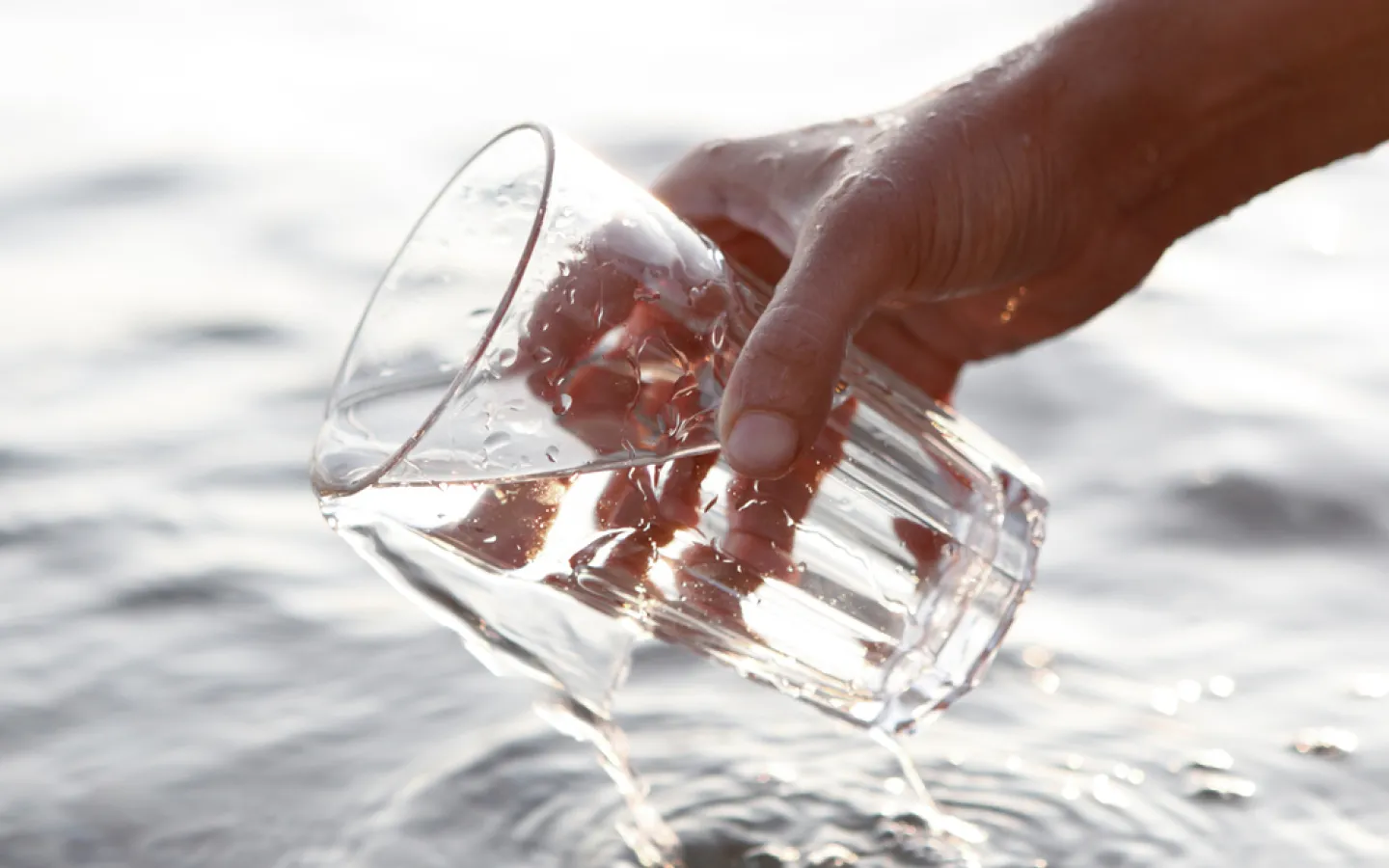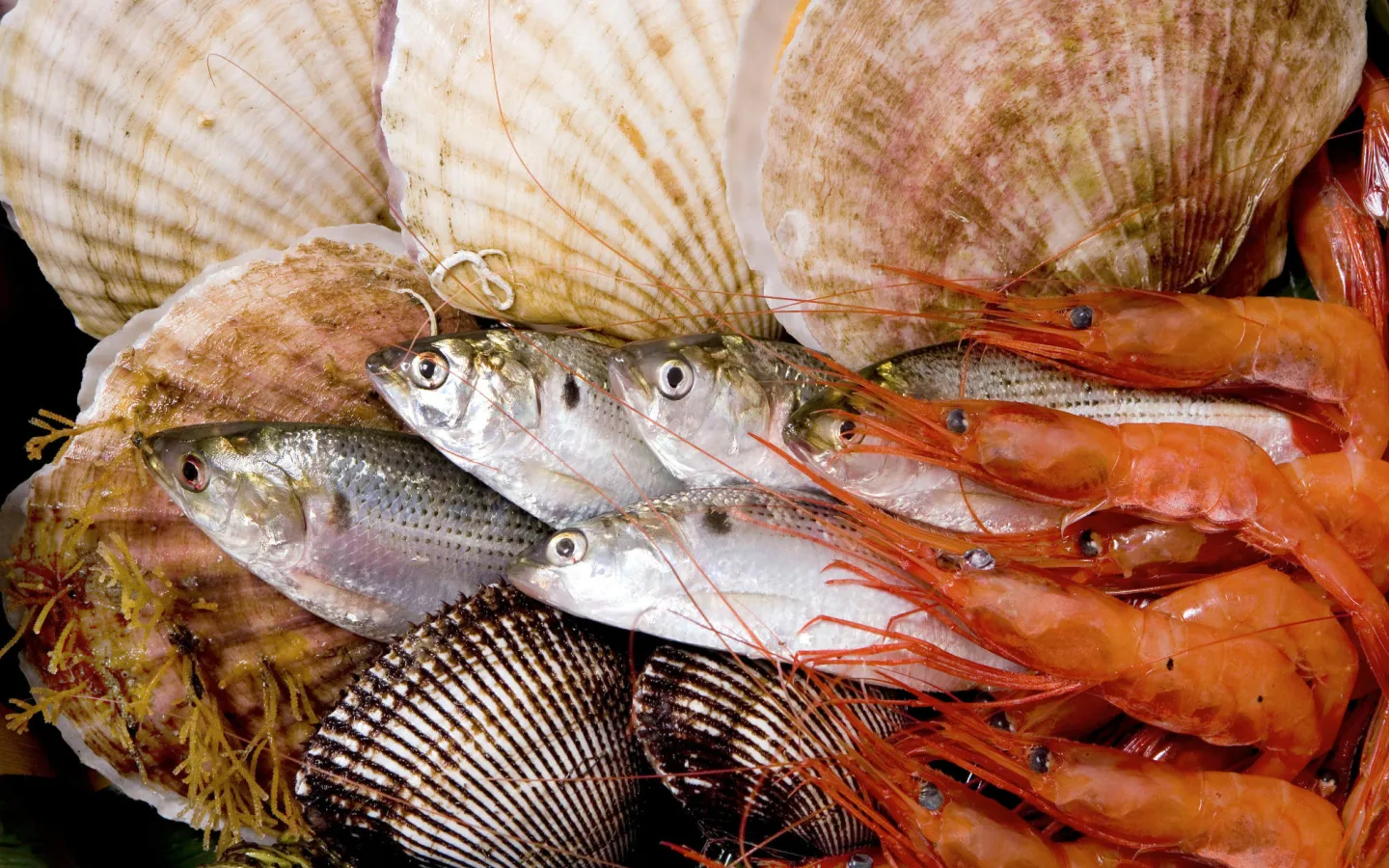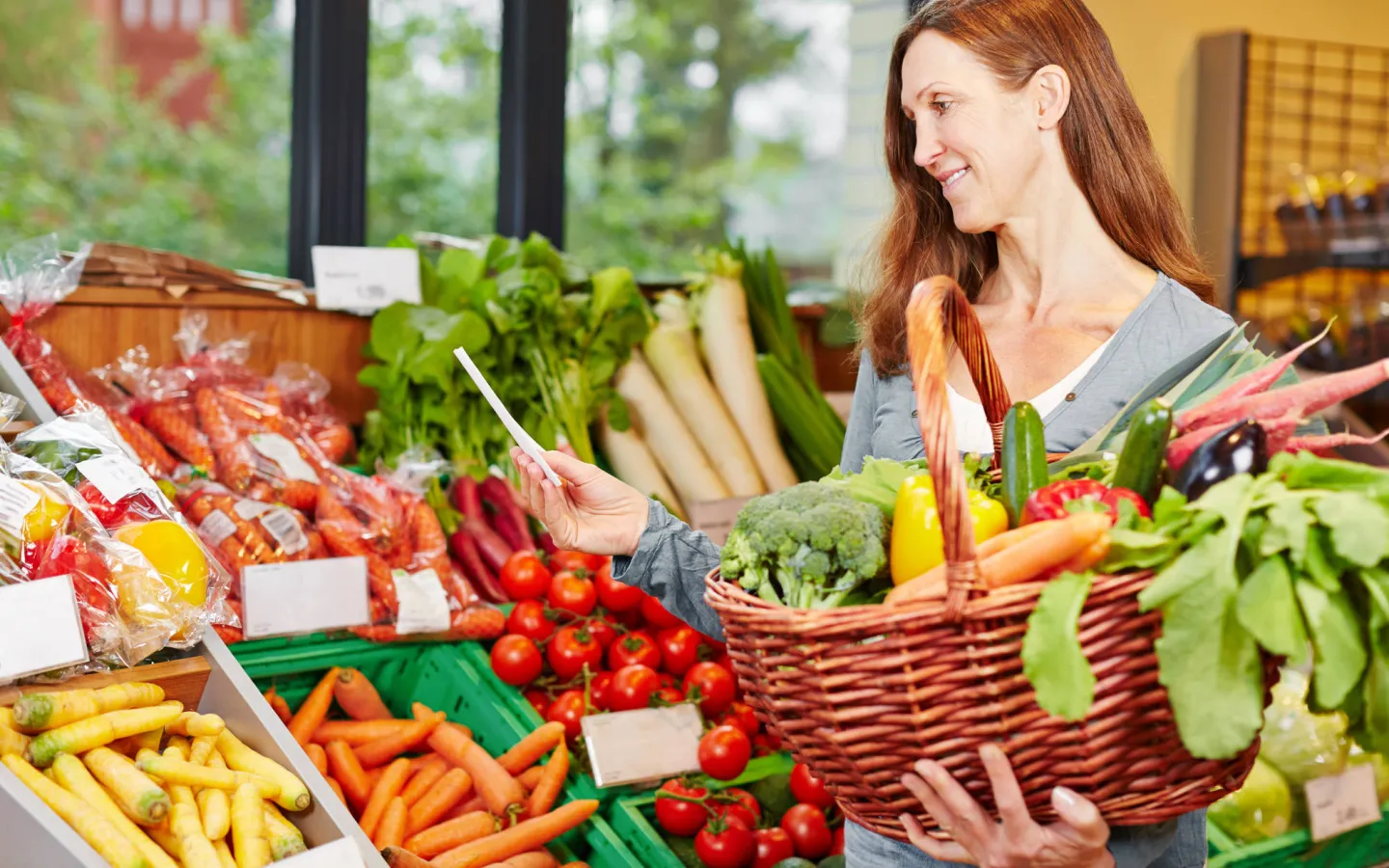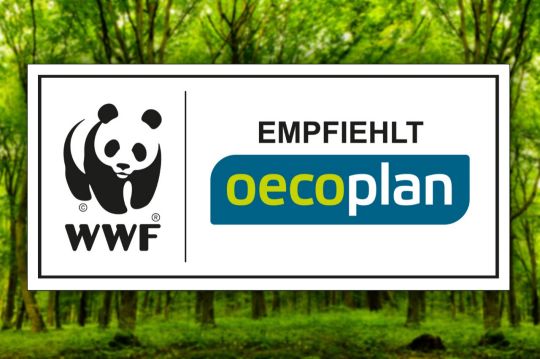Partnership with Coop 2024
Since 2006, WWF and Coop have been working together in a strategic partnership towards more environmentally-friendly consumption. Coop has made an ambitious commitment to WWF on key environmental issues.

Related Topics:
Corporate Partnership
CLIMATE
In January 2022, Coop joined the Science Based Targets Initiative (SBTi) and committed to reducing its emissions based on science-based targets. In this way, Coop not only reduces its operational footprint, but also indirect emissions such as emissions from traded products. Already since 2007, Coop has been committed to avoiding and reducing CO2 emissions through a binding reduction path when transporting goods by plane (the largest source of CO2), coop.ch deliveries, and business trips. More about the voluntary climate protection projects here.
oop pursues a reduction path for the Scopes 1-2 in line with the SBTi
Coop aims to reduce absolute CO₂e emissions by 42% by 2030 compared to 2022, covering Scopes 1 and 2 (market-based) per the GHG Protocol. Measured in tonnes of CO₂eq per year. Applies to the Coop Group.
In 2024, Coop Group’s Scope 1 and 2 emissions were 248,903 tonnes CO₂eq.
Coop pursues a reduction path for Scope 3 agreed with SBTi
Coop aims to follow an SBTi-aligned reduction path for Scope 3 emissions per the GHG Protocol. Measured in tonnes of CO₂eq per year. Applies to the Coop Group.
In 2024, Coop re-established the baseline for its group-wide carbon footprint. Climate targets were validated by SBTi, and a reduction strategy for Scope 3 is being developed. Improved data collection and methodological updates from IPCC affect calculations. The base year 2022 will be revised in 2025/26 to improve comparability. Ideally, the next performance report will show emissions retroactively from 2022 to transparently track progress.
Reduction of absolute CO2e emissions caused by air freight
Coop aims to reduce absolute CO₂e emissions from air freight from 84,605 tonnes in 2014 to 55,871 tonnes by 2026. This is measured in tonnes of goods flown in, multiplied by km and CO2e/km. The reporting period was July 2023 to June 2024. The scope is air freight excl. flowers for supermarkets, Pronto, Bau+Hobby, Warehouse, and Coop.ch.
By mid-2024, emissions from air freight were 58,573 tonnes CO₂e.

Water
Coop is currently developing the basis for setting science-based targets in the area of water.

BIODIVERSITY
Coop is currently developing the basis for setting science-based targets in the area of biodiversity.
Transparency per raw material
Coop has set itself the goal of knowing the origin of 100% of the Forest Risk Commodities (meat, cocoa, coffee, palm oil or wood & paper) in Coop private labels by 2026. The share of Forest Risk Commodities in Coop own brands with known origin (meat, cocoa, coffee, palm oil or wood & paper) is measured. Scope is retail trade.
In 2024, the origin was known for approx. 98% of Forest Risk Commodities.
Supplier commitment
Coop has set itself the goal that by 2026 100% of direct business partners have a commitment to deforestation- and transformation-free supply chains. The percentage of direct business partners with a commitment to deforestation- and transformation-free supply chains (suppliers of Coop own brands that supply meat, cocoa, coffee, palm oil or wood & paper) is measured.
The scope of application is the own brands in the retail trade.
In 2024, 33% of suppliers had such commitments.
Certification
Coop has set itself the goal of ensuring that 100% of Forest Risk Commodities meet a minimum standard by 2026.
The percentage of minimum standards (beef, cocoa, coffee, palm oil, soy, wood & paper) is measured.
Scope the private labels in retail trade.
In 2024, approx. 87% met minimum standards.
Note: The valuation method was adjusted, as a result of which the actual values are lower than in the previous year with the same performance.
Beef:
Bio Suisse, origins without deforestation and conversion risk according to WWF report.
Cacao:
Fair Trade, Bio Suisse, Rainforest Alliance
Coffee:
Fair Trade, Bio Suisse, Rainforest Alliance
Palm oil Food:
RSPO Identity Preserved (IP), RSPO Segregated (SG), Bio Suisse
Palm oil Non-Food:
RSPO Identity Preserved (IP), RSPO Segregated (SG), RSPO Mass Balance (MB), Bio Suisse
Soy:
Standards with soy feeding ban, Bio Suisse, Pro Terra, Donau Soja, Europa Soja, RTRS Non GM, Origin Switzerland, Other origins without deforestation and conversion risk according to WWF Report, Mutterkuh, Naturabeef, Naturaveal, IP-Suisse (pasture-raised beef).
Wood and paper:
FSC or recycled or with verified origin ,PEFC or origin without deforestation and conversion risk according to the risk country list of Prefered by Nature*.
Traceability per raw material
Coop has set itself the goal of increasing the proportion with a segregated minimum standard for the raw materials cocoa, coffee and palm oil to 85% by 2026. The scope of application is the retail trade.
In 2024, 78% of procured cocoa, coffee, and palm oil met this standard.
Note: The EUDR led to significant improvements, especially in sourcing segregated cocoa butter.

FISH AND SEAFOOD
As members of the WWF Seafood Group, Coop and Bell have committed to not offer any species threatened with extinction, to phase out non-recommendable sources, and to continuously expand the proportion of recommendable labels.
Coop: The share of recommendable or acceptable sources according to WWF in the entire seafood range
Coop has set the goal of sourcing 100% of the entire seafood range from recommendable or acceptable sources according to WWF. This is measured as a percentage of the turnover of the total seafood range. The scope comprises Coop supermarkets, Pronto, Coop to go, Coop.ch, department stores, restaurants, and FOOBY.
In 2024, once again 100% of the total seafood assortment originated from recommended or acceptable sources.
Coop: Share of recommendable sources according to WWF in the entire seafood range
Coop has set the goal that by 2024, 85.8% of the total seafood assortment should come from recommendable sources according to WWF. This is measured as a percentage of revenue from the total seafood assortment. The scope includes Coop supermarkets, Pronto, Coop to go, Coop.ch, department stores, restaurants, and FOOBY.
In 2024, 81.70% of the total seafood assortment originated from recommended sources.
Note: The share of recommended labels increased compared to the previous year but still falls short of the target path. In particular, delays in switching smoked fish to ASC certification and the insufficient availability of organic salmon contributed to this.
The availability of organic salmon was not sufficient, and the transition to ASC-certified smoked fish led to delays, which is why the targets were clearly not met compared to the previous year.
There is a tendency for demand to shift toward more affordable products.
Coop: The share of recommendable labels according to WWF (organic, ASC, MSC), in the entire seafood range
Coop has set itself the goal that by 2024, 79.5% of the total seafood assortment will be certified with recommendable labels according to WWF according to WWF (Bio, ASC, MSC). Measurement is based on the percentage of net revenue.
Scope includes Coop supermarkets, Pronto, Coop to go, Coop.ch, department stores, restaurants, FOOBY.
In 2024, just under 76% of the total seafood assortment was certified with recommended labels according to WWF.
Note: The share of recommended labels increased compared to the previous year but still falls short of the target path. In particular, delays in switching smoked fish to ASC certification and the insufficient availability of organic salmon contributed to this
Bell: The share of recommendable or acceptable sources according to WWF in the entire seafood range
Bell has set the goal of sourcing 99.9% of the overall seafood range from recommendable or acceptable sources according to WWF.
Measurement is based on the percentage of revenue from the total seafood assortment.
In 2024, 98.8% of the total seafood assortment originated from recommended or acceptable sources.
Note: The expansion of the food service channel led to a decline in the share of recommended or acceptable sources. The food service assortment is being continuously reviewed and, where possible, switched to more sustainable alternatives according to WWF assessment.
Bell: Proportion of recommendable sources according to WWF in the overall range
Bell has set itself the goal that by 2024, 72% of the total seafood assortment will originate from recommendable sources according to WWF Bell has set itself the goal that by 2024, 72% of the total seafood assortment will originate from recommended sources according to WWF.
Measurement is based on the percentage of revenue from the total seafood assortment.
In 2024, 61.6% of the total seafood assortment originated from recommended sources.
Comment: The share of recommended sources increased compared to the previous year but still falls short of the target path. In particular, the insufficient availability of organic salmon contributed to this.
Bell: Share of recommended labels by WWF (organic, ASC, MAS) in the entire seafood range
Bell has set the goal of having 66% of the entire seafood range certified with recommended labels according to WWF (organic, ASC, MSC). This is measured as a percentage relative to the net turnover. The scope is Bell seafood.
In 2024, 54.7% of the total seafood assortment was certified with recommended labels according to WWF.
Note: The share of recommended labels increased significantly compared to the previous year but still falls short of the target path. In particular, the insufficient availability of organic salmon contributed to this.

ASSORTMENT
Coop has set the goal of increasing sales of organic products and expanding the range of vegan and vegetarian alternative products.
Increase the number of vegan and vegetarian alternative products
Coop has set itself the goal of expanding the range of vegan and vegetarian alternative products to 2,000 items by 2026.
Measurement is based on the number of new items added annually. This includes meat, fish, egg, and dairy substitute products as well as products from lines specifically designed and marketed for vegan/vegetarian consumption (e.g., Karma).
In 2024, 1,900 vegan and vegetarian alternative products were listed. Coop is therefore on a good trajectory toward its goal.
Turnover with organic labels
Coop has set the goal of increasing the turnover of organic products to CHF 2100 million by 2026. Turnover is measured in million CHF. The accepted standards are Bio Suisse, Schweizer Bio, and EU-Bio. The scope is Coop retailers, own brands and third party brands.
In 2024, sales in organic products were CHF 1’874 million.


